Even though I can’t remember the exact date, I still remember the laughter.
It was the Before Times—somewhere in that vague 2018-2019 timeframe, before COVID—and I was in an office conference room at a building where a friend was hosting game night with five other players, including me. (One of those players has gone on to become a lot more popular than I’ll ever be.) Most of the other folks in the room were not core hobbyists, but all of us wanted to connect along cultural lines; hence, the Black Nerd Game Nights were born.
It was always tricky for me to select games that might fit best for a general audience that weren’t games like UNO, so I brought Railroad Ink: Deep Blue Edition because it fit six players and was so easy to teach. The night’s host brought a few titles, including For Sale, an auction game I had heard of but no one had actually brought to a game night until this one.
And, the rest was history. That wasn’t because I won—which is often the reason why I sometimes come away from a first play loving a game, as we all know that winner’s bias is real—but because the game featured such a nice depth of decisions that surfaced almost as soon as the first round of bids was completed.
For Sale is a classic for a reason.
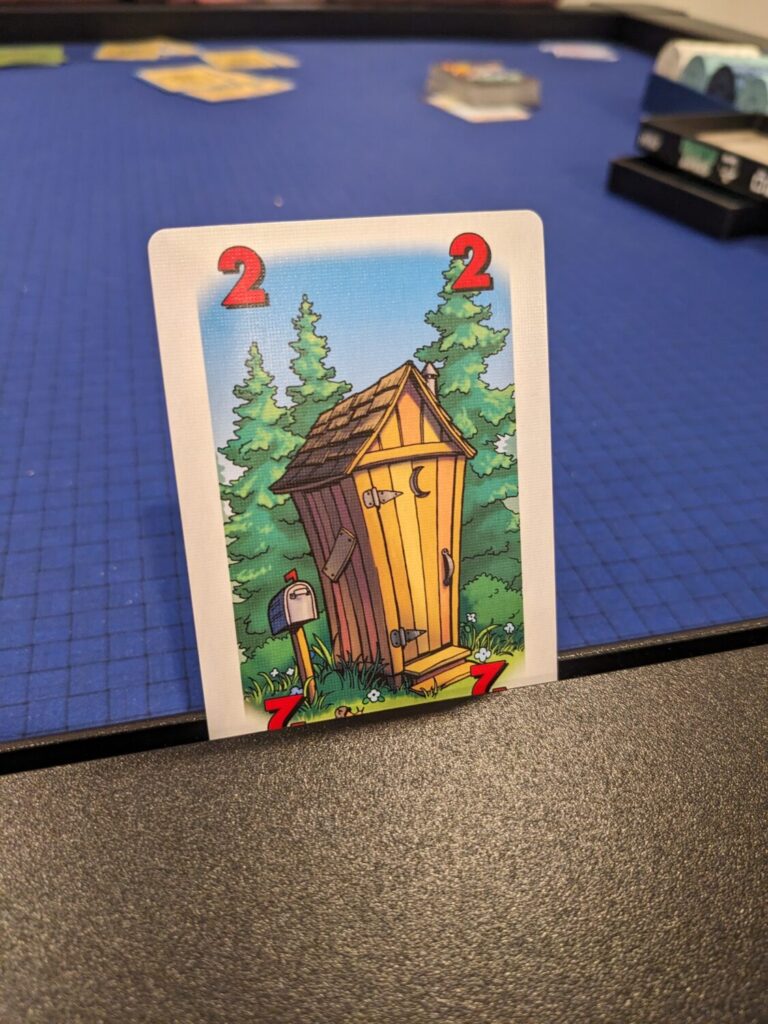
Get It Dorra
For Sale (1997, published by Eagle-Gryphon Games) is an auction game, nominally about real estate trading, for 3-6 players. I’ve played For Sale a number of times over the years but never had my own copy, so a big thanks to our partners at EGG for providing a review copy so that I could get in front of other groups for this article.
Ask a tabletop hobbyist about For Sale and everyone has a memory or three. That’s because the setup is so simple. With a small pool of starting cash, each player bids or passes on one of the available properties in the current market, with the market size equal to the number of players (so, in a four-player game, there are four properties available on each bidding turn). A player can pass, which immediately gives them the lowest-valued property in the market. If players bid and remain in the auction, the one who wins pays the full bid value and takes that property into hand, face-down. Players who pass get half of their bid back rounded down, so there’s a small amount of risk involved in bidding a property up only to take a lower-valued card.
In the second half of the game, the market is filled with money cards instead of properties, with each turn featuring money cards equal to the number of players. Players then secretly select one of the property cards acquired earlier and simultaneously reveal their selection. The player who revealed the highest-value property takes the highest-value money card, and this process is repeated until each player has one money card for each of their properties. When added to the value of any money leftover from the game’s initial auction, the player with the most cash is the winner.
The game’s 30 property cards are ranked from 1-30, with the 1 being a dirty cardboard box clearly perched in a city alley, and the 30 is a space station. Like most bid/auction games tied to real estate, the goal is to pay the least for the crappy properties then flip those duds for the most cash, and that’s true with For Sale. Using the least valuable properties to win middling, often high, payouts is usually what ends up winning the game, and I regularly watch players pass on bids altogether to simply take the lowest card, especially in rounds where the lowest-value properties have a double-digit card value.
Later, For Sale becomes a memory game…at least, for me it is. That’s because I’m always trying to remember what properties other players have acquired during the first half of play. And there are 30 money cards to complement the 30 property cards, with two money cards each of value zero, then $2,000-$15,000. My old brain was struggling during this step in a recent three-player game when I tried to remember if I had seen some of the really high properties already used to take money cards. Worse, I found myself forgetting if both of the value $15,000 money cards were already acquired too; what if I was putting my level 28 castle up too soon?
For Sale is such a fantastic, easy-to-table experience. Depending on your player count, games take anywhere from 15-30 minutes, including the teach. I think it’s fair to say that this is German designer Stefan Dorra’s most famous design, in part because a look at Dorra’s catalog revealed titles that have mostly been considered but never deeply adored. In fact, I have only played one other Dorra title, but it also happens to be a quick, fun, easy-to-teach auction game, the 1996 title Marracash.
While Dorra’s other credits may not have resonated with a broader audience, for a very tight two-year window, it feels like Dorra nailed it with auction games.
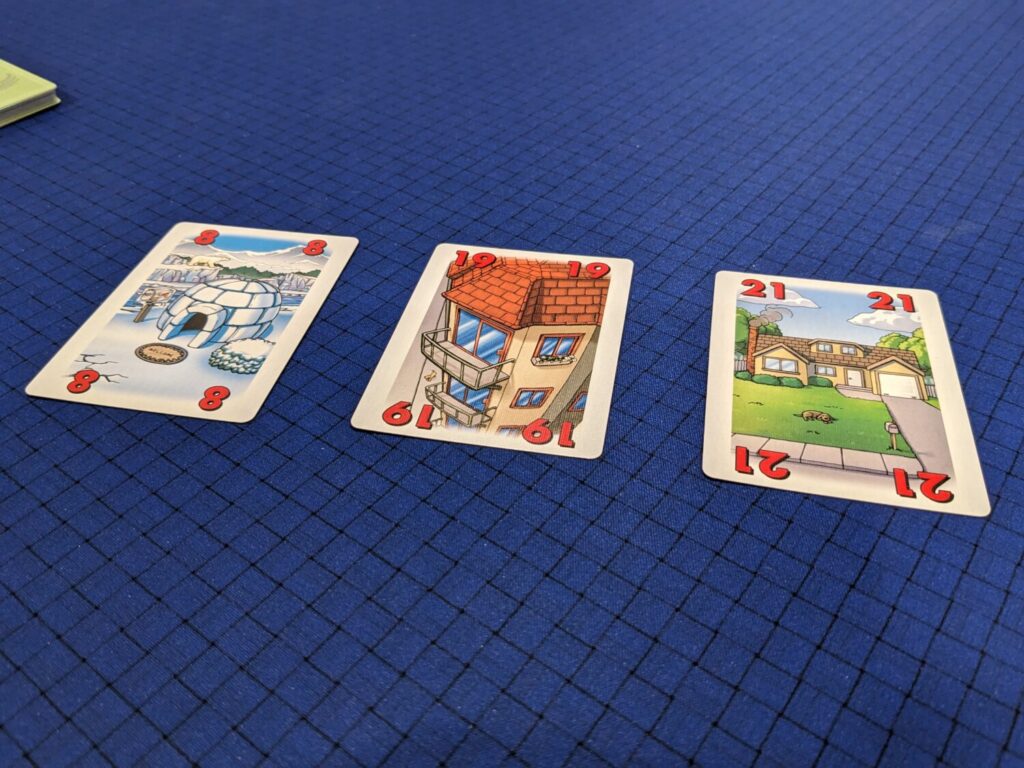
Add It to the Bag
Now that I have my own copy, For Sale is never leaving my collection. I can play it with my kids, I can play it with seasoned gamers, and I can introduce it to gamers who have never tried it before, like I did with a couple members of my review group. After playing friend copies over the years, now I get to use it as my short auction filler of choice when players come by looking for something to start or end the night.
There’s only one hole in For Sale’s armor: it is good, but not great, at three players. In the three-player format, each player acquires eight cards, as six cards (of both property and money types) are randomly removed before the game. It’s possible that holding out for those $15,000 money cards might all be for naught if they were removed from play, and I found that the first-half auction setup was only so-so with fewer players.
That just means I will likely bust out For Sale when I have five or six players, and that’s fine. Plus, For Sale is available on Board Game Arena, so in a pinch I can find players around the world willing to bid up a tent, doghouse, or sewer dwelling just like I can in real life. Add this classic to your collection if you haven’t done so already!


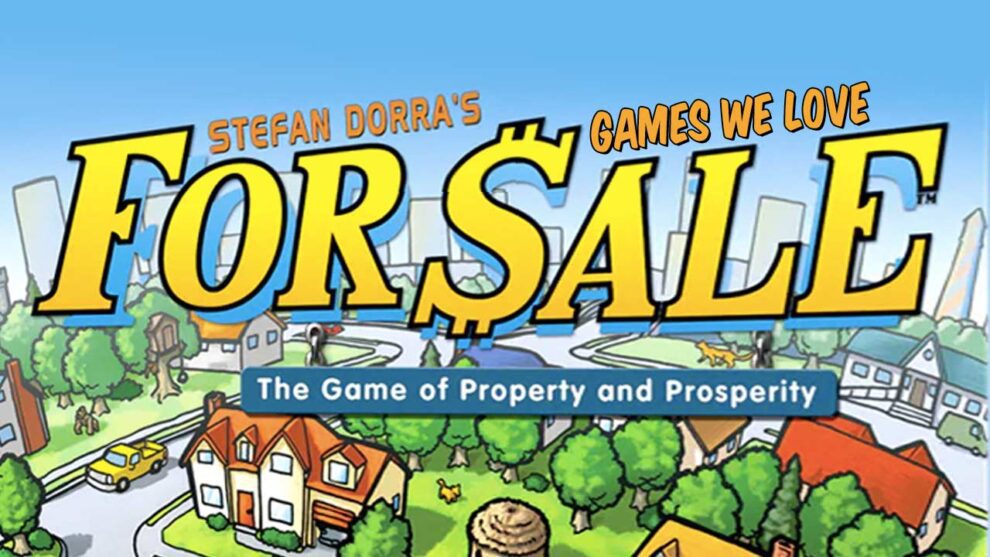

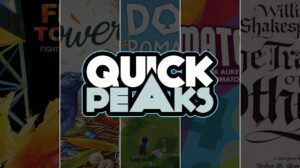


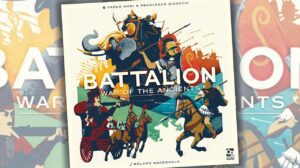




Beautiful write-up for a great game!